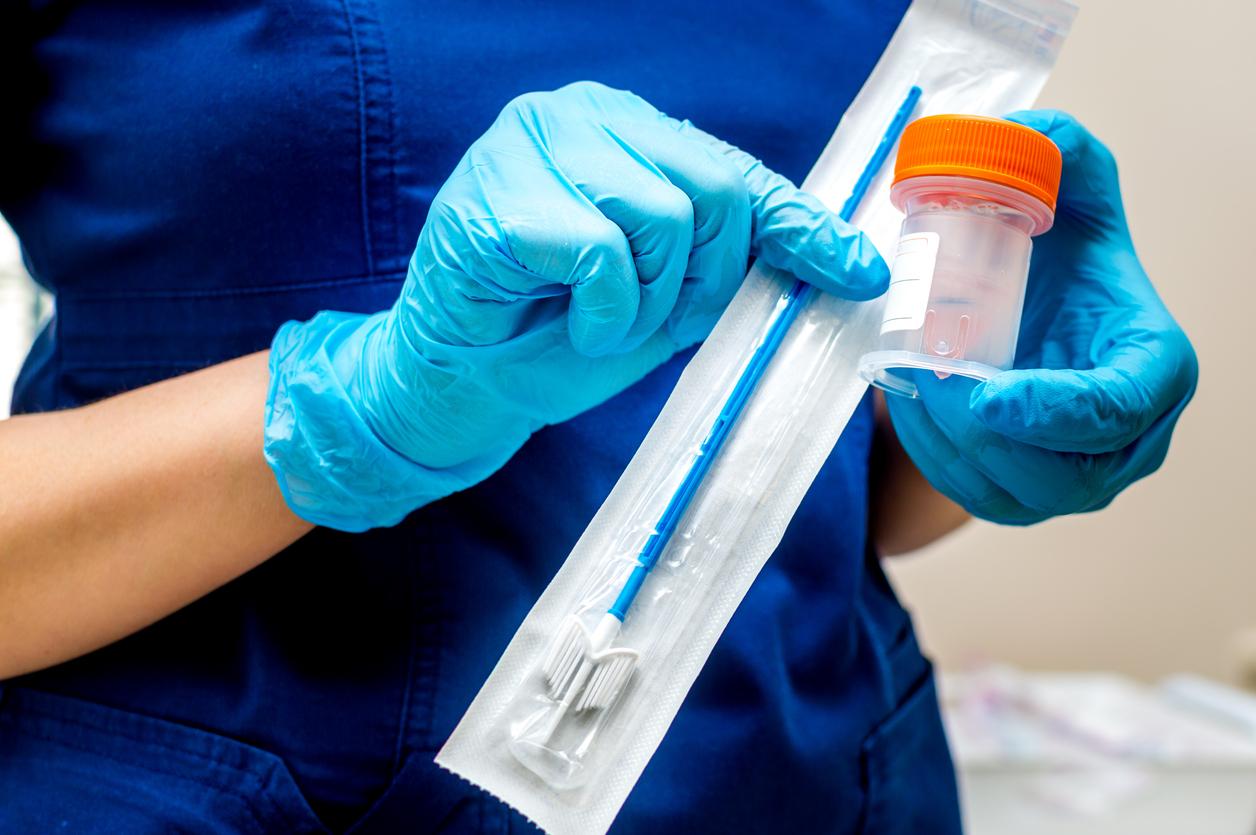A survey of almost 2,000 US women published today in PLOS Global Health shows that the COVID-19 pandemic, with its disruptions to healthcare, led to a drop in routine Pap smears and other screening for cervical cancer.
The findings add to a body of literature showing that disruptions to routine screening healthcare services hit hard during the first years of the COVID-19 pandemic. The US Preventative Service Task Force recommends cervical cancer screening with cytology (Pap smear) every 3 years for women 21 to 29 years old, while women aged 30 to 65 should either continue with 3-year screening, or a combination of Pap smears and human papillomavirus (HPV) testing every 5 years, or with HPV testing alone every 5 years.
The study was based on women aged 21 to 65 from the National Cancer Institute Health Information National Trends Survey conducted in both 2019 and 2022. Participants classified as non-adherent to cervical cancer guidelines if their last Pap smear was more 3 years before the survey. Participants were also asked about their knowledge of the HPV vaccine and were categorized as unaware if they had not heard of it before
Overall, 1,905 women with a mean age of 44.5 years were including in the study; 61.3% were White, and 35.4% had a college education or higher.
The researchers found that the prevalence of non-adherence to cervical cancer screening in 2019 was 19.2%, but it increased by 6.6 percentage points in 2022, to 25.8%. The increase was 5.6 percentage points in White women and 13.9 percentage points in Black women.
In 2019, 18.9% did not hear about the HPV vaccine in 2019, which increased by 2.8 percentage points in 2022.
Age linked to drop in screening
In 2022, the prevalence of non-adherence to cervical cancer screening was 25.8%, and non-adherence was linked to non-adherence.
Race was linked to knowledge of HPV vaccination, with non-Hispanic White women showing an increase in knowledge about HPV vaccine by 2.5 percentage points from 2019 to 2022, while Black women showed a decrease by 9.4 percentage points.
Young women in their 20s and 30s were most likely to be non-adherent to screening recommendations and more likely to not know about HPV vaccination. In 2019, 27.7% of women aged 26 years or younger were not adherent to cervical cancer screening, compared with 43.0% in 2022.
Those aged 26 or younger displayed a greater drop in knowledge compared to their counterparts.
In 2019, 11.6% of women aged 26 and younger did not hear about the HPV vaccine, compared with 23.6% in 2022.
"Those aged 26 or younger displayed a greater drop in knowledge compared to their counterparts," the authors wrote. "This may be due to disruptions in health education and preventive care services during the pandemic, which disproportionately impacted younger individuals who may have otherwise received vaccine information through school-based or primary care outreach."

















